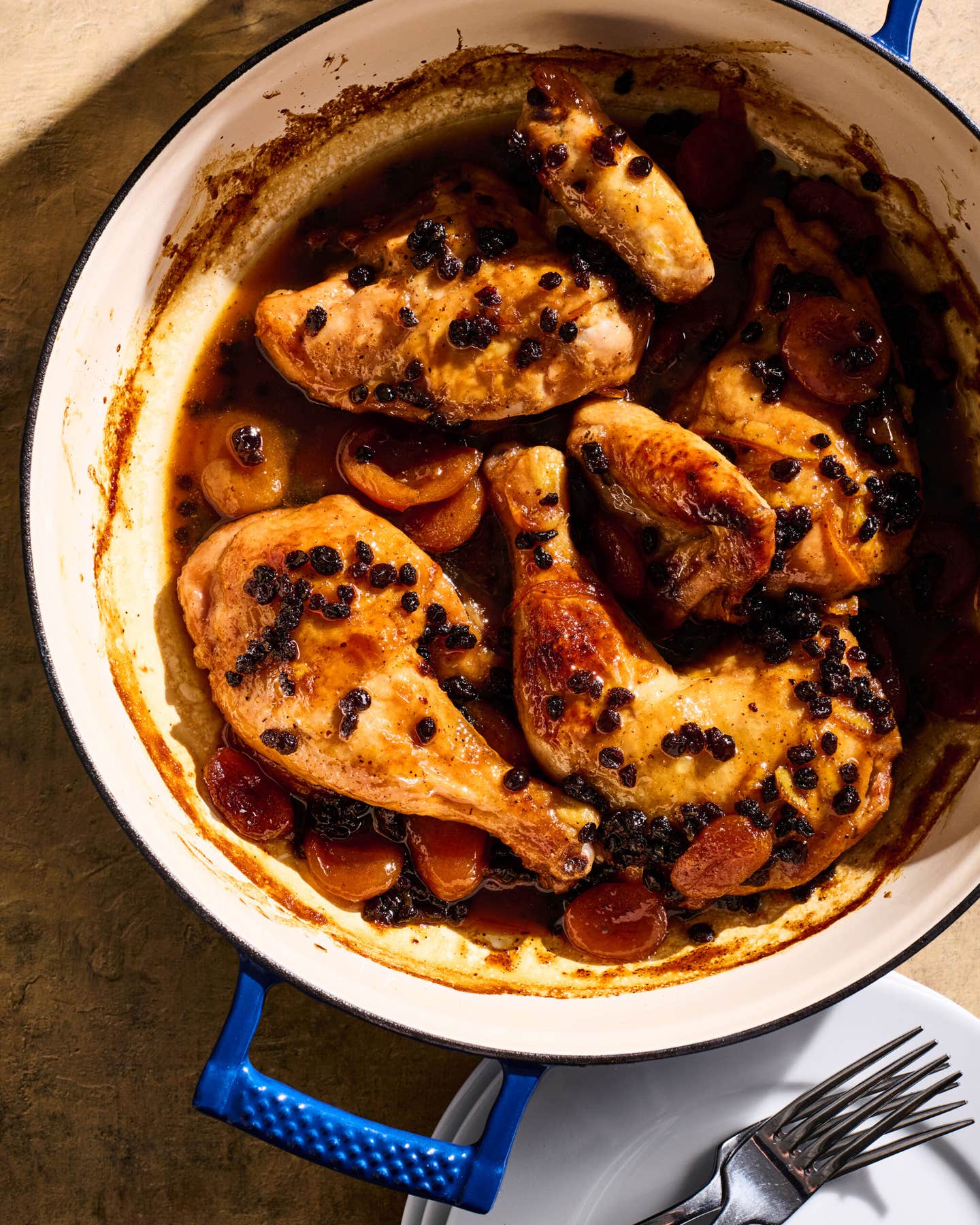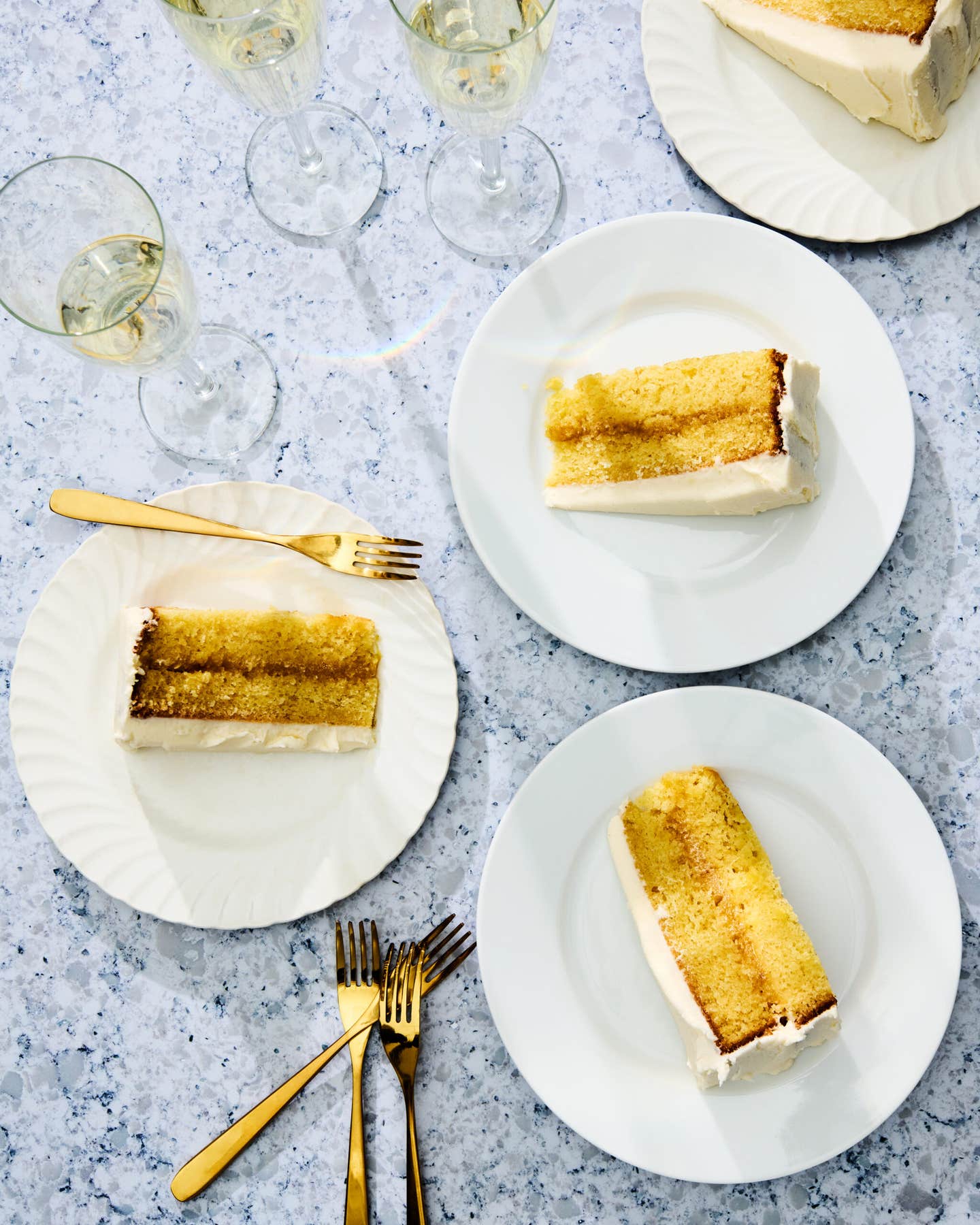
In Defense of Mom Food: Why Your Slow Cooker Deserves Your Respect
For decades, slow cookers have helped working moms get dinner on the table, but as their popularity rises among well-esteemed chefs, are men getting all the credit?
It was the slow-cooker chawanmushi that really made me sit up and listen. It was 2014; I was an editor at Food & Wine, on the phone with Grant Achatz, the award-winning chef behind Alinea in Chicago, as he was telling me about all the things I could make in a Crock-Pot. "Sure," he said. "Chawanmushi, pots de crème, custard, just use the slow cooker like a bain marie." I thought this was pretty counterintuitive—who had ever heard of slow-cooked pot de crème?—but also very smart. I went home and tried it, and it worked beautifully, and that's the story of how I came to write Adventures in Slow Cooking, a slow-cooker cookbook with a foreword by Grant.
Then, the other day, I was idly flipping through Fix-It and Forget-It™ Slow Cooker Magic, one of the many crowd-sourced, spiral-bound, best-selling, aggressively homey slow-cooker tomes by Phyllis Good. My aunt, who hates to cook, bought it for me a couple years ago, because I had just had a baby and I guess she figured that I'd therefore lost my will to live and/or cook. I was half offended and had never even cracked it open. I'm a food professional for chrissake, I thought. In what world would I need this book?
And there it was, on page 260: Simple Egg Custard, a delicate, vanilla custard made in a slow-cooker water bath, submitted by Paula Winchester of Kansas City.
The problem here is not that I had assumed that Grant had something cool to teach me—he obviously did, and graciously so, since he is both brilliant and busy and didn’t have to answer my call in the first place. The problem was that I had simultaneously totally rejected the notion that someone like Phyllis Good might have anything at all to impart. She was cooking “mom food,” and even as a mother myself, I wasn’t able to see the potential value in that—the stores of knowledge that collect with the uncelebrated years of getting something on the table with your own two hands and not enough time. The slow cooker is uniquely positioned to reveal how our values of different kinds of cooking vary depending on the gender of the person doing it, and I guess I’m part of the problem.
In a recent essay on the gendering of food trends in Taste, Jaya Saxena wrote, critically, "When men enjoy something, they elevate it. But when women enjoy something, they ruin it." She was making a point about rosé: its steep, Instagram-y, female-centric rise and its ultimate snobby (and sexist) backlash. Her argument easily applies to slow cooking. The only difference might be that slow cookers are not a trend, they are a cultural institution—one that is deeply, viscerally associated with moms. And—surprise!—we love mom, but we don't respect her work.
Slow cookers are unique in the popular imagination of cooking culture, even as compared to other 20th-century time-savers like frozen foods and the microwave. They are at once overwhelmingly popular (more than 80 percent of American households have one) and subtly disdained, often portrayed as a dowdy, staid one-way ticket to beef stew. They are unique in the depth of feeling they evoke: No one has feelings about a microwave or frozen peas. But slow cookers are loved, hated, and loved and hated, probably because they’re so strongly associated with mothers. If there are two different kinds of cooking, one is chef food, aka man food: skilled, aspirational, interesting. And then there is mom food: comforting, necessary, perceived as unskilled. Sous vide is chef food. Slow cooking is mom food.

I’ve worked at a variety of publications as a food editor and writer, and in my experience, just about every readership wants slow cooker recipes, and just about no food editor wants to work on a slow cooker recipe story. It’s not a cooking method that’s seen as worthy of serious consideration—at least, not until someone like chef Hugh Acheson takes it up, as he has in a recent cookbook.
A story in the Washington Post about The Chef and Slow Cooker, Acheson's fantastic book, starts right out by describing slow cookers as "dull." The point, seemingly, is that Acheson is injecting the field with some much-needed excitement, elevating the slow cooker simply by virtue of being exactly the opposite kind of person whom you would expect to be using one.
Look, I do think that slow cooker cookery could use an infusion of fresh ideas. I've been to Slow Cooker Pinterest Land, and it is not pretty. There's an awful lot of shredded meat in too much sauce and varied takes on "enchilada soup." People who love slow cooking deserve better recipes than what is typically offered to them—that was the goal of my book. And it is certainly true that cooking professionally requires a different set of skills than cooking for your family. The two acts are not at all the same; restaurant chefs have knowledge that home cooks don't.
But how we think and speak and write about those different kinds of cooking (sous vide: cool, interesting; slow cooking: uncool, uninteresting, in need of a male makeover) says a lot about who and what we value.
The slow cooker was invented by Irving Naxon in 1936. He quietly marketed and sold his invention as a “Beanery” for thirty years, but in 1970, he sold it to the Rival Company, which re-branded it as the Crock-Pot. It was also a time when women were joining the workforce in increasing numbers. In 1965, only 35 percent of the workforce was female; by 1980, that number had jumped to 42.5 percent. Rival immediately began marketing the device to women. "The Working Woman's Dream!" trumpets one Crock-Pot ad. Another promises a "Mom's-Gone-Shopping Casserole." More and more middle-class women were entering the workforce, but they were still held responsible for the unpaid labor of the home, which included getting dinner on the table. To a great extent, this is still true.
I wish I could wholeheartedly laud the slow cooker as a feminist icon, a tool that allowed women to do something other than check the roast all day. And there is some truth in the idea that the slow cooker has been a friend to women, and to working people in general. My grandmother used it to make Sunday pot roast, so that she—a nurse and a farmer—could go about the many, many other tasks that she had to do that day. There's even an entire website dedicated to celebrating the intersection of feminism and slow cooking, and it's wonderful.
But it's also true that the slow cooker is exactly the kind of "help" that our society loves to give mothers: Expanding women's ability to work outside the home never translated to diminishing the labor they were expected to do in the home. And then that domestic work, that cooking, was—and remains—devalued, as if to make it disappear entirely. It's just slow-cooker pot roast, jeez mom, no big deal.

In a way, it adds insult to injury: Slow cookers were marketed as a promise that a working mother could finally catch a break, that someone (or something) else could pick up some of the slack once in awhile. But there’s no need to ask your husband to pitch in with dinner when you have an electric cooking pot!
“It has a lot to do with our cultural associations between the cooking we do on a daily basis, for sustenance, and drudgery or obligation,” says Marilyn Morgan, an historian and archivist who teaches on gender and food history at Harvard and the University of Massachusetts.
“That’s why the slow cooker isn’t seen as an inspiring tool. It’s used for something you have to do. In a way, the marketing of time-saving kitchen aids also infantilized working women—implying that harried moms, especially, couldn't do things right on their own. So, a cooking tool that was intended to help working women had the side effect of devaluing their cooking responsibilities, as if to say: Daily cooking isn't really that hard and it certainly doesn't require inspiration or talent—just throw these ingredients into a pot.”
And so, the slow cooker and the harried mom became entwined, and that entwining explains why slow cookers evoke the feelings that they do: We love them, find them comforting, but also think they’re kind of lame.
These feelings say very little about what the appliance can actually do. But they do say a lot about how we expect families to be fed, and by whom, and how little we are prepared to value or even acknowledge that kind of daily cooking.
I’ve spent so much time tinkering with slow cookers now that I feel like I could never be without one. I love them, these clunky, metal-clad throwbacks—I love that they can make perfect custard and great congee and creamy polenta. I love it when they make me examine my own built-in biases. I love imagining all the countertops where they gently bubble away all day as the sun fades, waiting for the door to open, the lights to flick on, the family to sit down to dinner. Their legacy is complicated, like everything else that’s grounded in family—the push-pull of raising children, making a living, trying to preserve something for yourself.
A recipe tester who worked on my book commented, in a way that she meant to be a compliment, that my meatballs tasted like "mom food." I smiled, but got all huffy on the inside. Now, I think: Yeah, that’s right. Please, call it mom food. I’d be lucky to be in that company.
Keep Reading
Continue to Next Story










